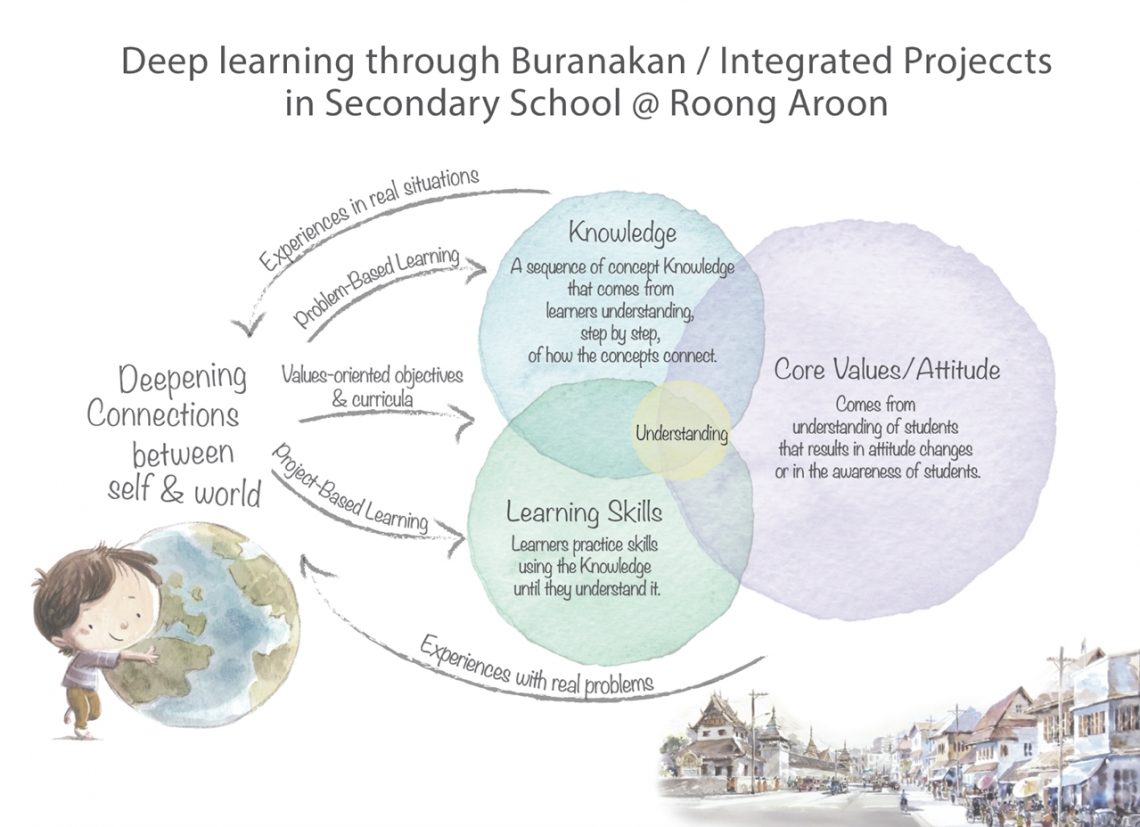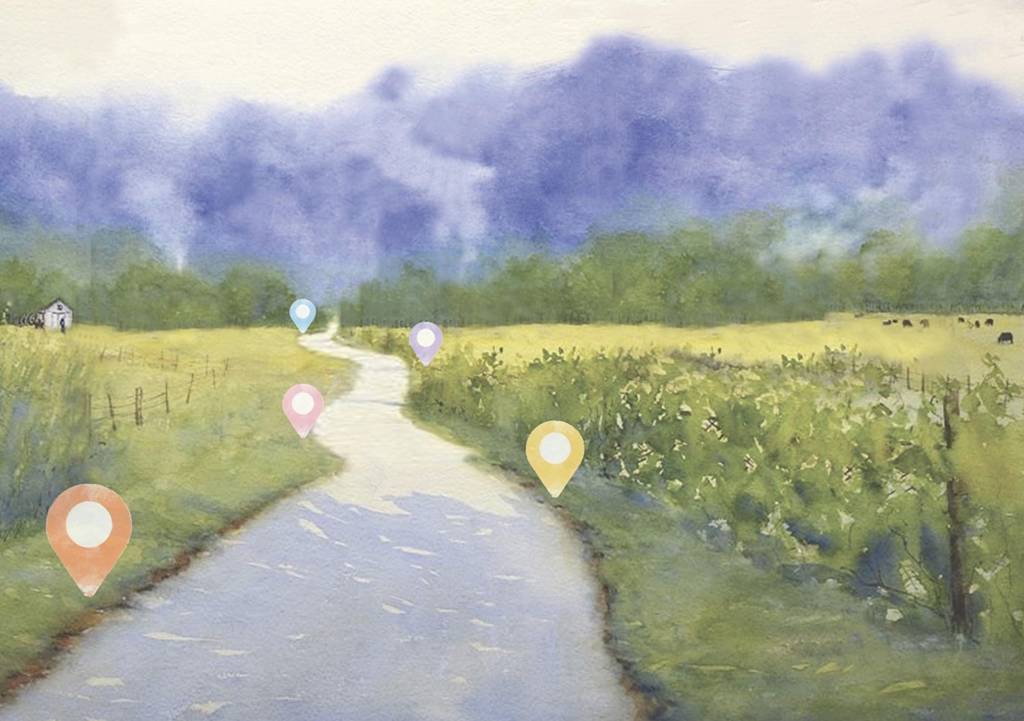
Buranakan in Grade 9: Deep Learning through Integrated Project Work
Grade 9 Buranakan:
Studying the Seas Around Thailand
Getting Started in the Global Pandemic
In May 2020, the RAS subject-area teachers looked at curricular goals for examining the global COVID-19 pandemic. At the same time, the Grade 9 Buranakan teachers decided to consider not the human impacts, but the unexpectedly positive environmental effects happening when millions of people stayed at home during periods of pandemic lockdowns. They centered the start of Term 1 around the positive question of: What could be learned about natural resources being replenished during the coronavirus in Thailand?
During most years, Grade 9 students at Roong Aroon go on week-long field trips to rural areas of Thailand each term. The field trips add an experiential learning component to the students’ learning processes. In the summer of 2020, the global Covid19 pandemic made it so that field trips were not allowed in Term 1. Even without such direct learning experiences in the “real world,” students were learning through collaborative and hands-on experiences designed for learning and sharing from within their own classroom, combined with a series of research tasks.
Field studies and learning in the real world are critical tools for supporting the deep learning process. However, when circumstances do not allow for it, there are other ways to spiral into the many dimensions of learning by accessing varieties of knowledge, doing, researching, collaborating, communicating, and media literacy development. As illustrated by the Grade 9 2020 example, deep learning can happen virtually, too, when in-person meetings are not possible.
Road Mapping: Open-ended process for planning the term
Every term, Roong Aroon teachers develop and present “roadmaps” (term plans) to other teachers or experienced school leaders for feedback. Creating a roadmap is a process of looking at the big picture of target objectives (for values, skills, knowledge), then designing activities, tasks or experiences to guide the students’ learning processes. It’s a collaborative sharing process for re-examining the values, skills, and knowledge objectives of the term, and how they align with learning processes and evaluation, and also ensuring that all of this connects meaningfully with the students’ lives.

Overview of Secondary Grade 9 Roadmap, Terms 1 and 2
THEME: New Norm of Balanced Life and Nature
GOAL based on a synthesis of CORE VALUE: Students will see that our lives depend on our country’s natural resources, but most human activities have been affecting them negatively, causing them to decrease. However, if we cease these polluting activities, we can revive our natural resources. This makes us see that Thailand is highly dependent on natural resources and allows us to get through crises. If these resources disappear, we cannot survive. Therefore, whatever becomes of the natural resources depends on us. We need to find ways to preserve the natural resources and pass this knowledge on to others.
| Grade 9 Buranakan, Term 1 | |
| Theme | Stable Living with the Ocean |
| Core Concept | The Thai ocean has an ecosystem that can renew itself as long as human activities do not affect it. |
|
Goals: Students will… |
– See how the ocean’s resources renew themselves. |
| Outputs |
– Design and find ways to live their lives in a stable manner without affecting the ocean too much. – Make videos to present new ways to prolong ocean resources. |

